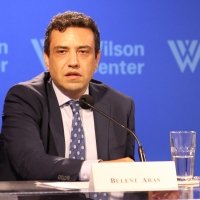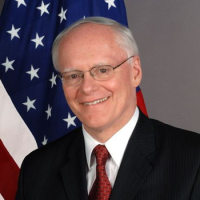Turkey: The Struggle for Its Future
Summary of the Call
It has been a trying year for the Turkish Prime Minister, Recep Erdogan, as he and his administration have come under numerous political attacks. However, after facing popular protests in Istanbul last summer and a high-level corruption scandal only a few months ago, the PM has passed a key test of confidence, as his Justice and Development Party (AKP) won majority support in the country’s municipal elections on March 30.
Speaking from Istanbul two days after the municipal elections, Dr. Gulnur Aybet stated that, although the AKP has seemingly cemented its grasp on power, the key question is, “what will they do now?” She expects Erdogan to now move on with some “deep state cleaning,” in which Erdogan and his allies will attempt to apply new checks and balances of power on entrenched bureaucrats as well as implementing institutional reforms, targeting the judiciary, intelligence agencies, and other aspects of government. Further, given the unity the AKP has demonstrated throughout this year of conflict, she expects Erdogan to stand as the sole AKP candidate in upcoming presidential elections.
In Ankara too – where opposition parties have contested the vote – Dr. Bulent interpreted the vote as a victory for PM Erdogan. Results are showing that support for the AKP has increased since last election – this time winning roughly 45% of the vote. Dr. Bulent believes that Turkey will continue its historical trend of slowly “moving from crisis to reform.” It is his hope now that, with this demonstration of support for Erdogan, politicians will be able to advance an array of economic and political reforms resulting in a stabile and democratic Turkey “within a year or two.”
Like the other speakers, Ambassador James Jeffery also saw this vote as a significant victory for Erdogan, and a sign that both his pursuit of a “majoritarian government” and his rhetoric against international and domestic powers will go unchanged. However, the Ambassador also suspects that Erdogan’s domestic agenda could meet some resistance, particularly any attempts he makes to reform the country’s constitution. However, these potential domestic problems become secondary when considering the increasingly “heavy foreign policy agenda” that involves Turkey.
If the U.S. and it allies hope to make any gains in Syria, they will need Turkish support and cooperation. Similarly, Amb. Jeffery believes that Turkey can and should play a key role in enforcing regional stability, exercising its influence in Iraq and amongst the region’s Kurdish population. Further, he acknowledged the growing potential for a joint energy deal between Turkey, Israel, and Cyprus, that could further sow regional stability and further diversify the EU’s energy supply, and lower its dependence on Russian gas.
With all these initiatives in mind, it is important the Western leaders do not judge Erdogan too quickly. These are tough political times and in order to succeed, Western leaders will need to strike a balance so that we can pursue our vital interests while respecting our values and respecting our allies in Turkey.
Speakers


Professor of International Relations, Faculty of Arts and Social Sciences at Sabancı University, Istanbul, Turkey
Head of Department, Political Science and International Relations, Bahçeşehir University

Former ambassador to Iraq and Turkey, and Special Envoy to the Global Coalition To Defeat ISIS

Hosted By

Global Europe Program
The Global Europe Program is focused on Europe’s capabilities, and how it engages on critical global issues. We investigate European approaches to critical global issues. We examine Europe’s relations with Russia and Eurasia, China and the Indo-Pacific, the Middle East and Africa. Our initiatives include “Ukraine in Europe”—an examination of what it will take to make Ukraine’s European future a reality. But we also examine the role of NATO, the European Union and the OSCE, Europe’s energy security, transatlantic trade disputes, and challenges to democracy. The Global Europe Program’s staff, scholars-in-residence, and Global Fellows participate in seminars, policy study groups, and international conferences to provide analytical recommendations to policy makers and the media. Read more
